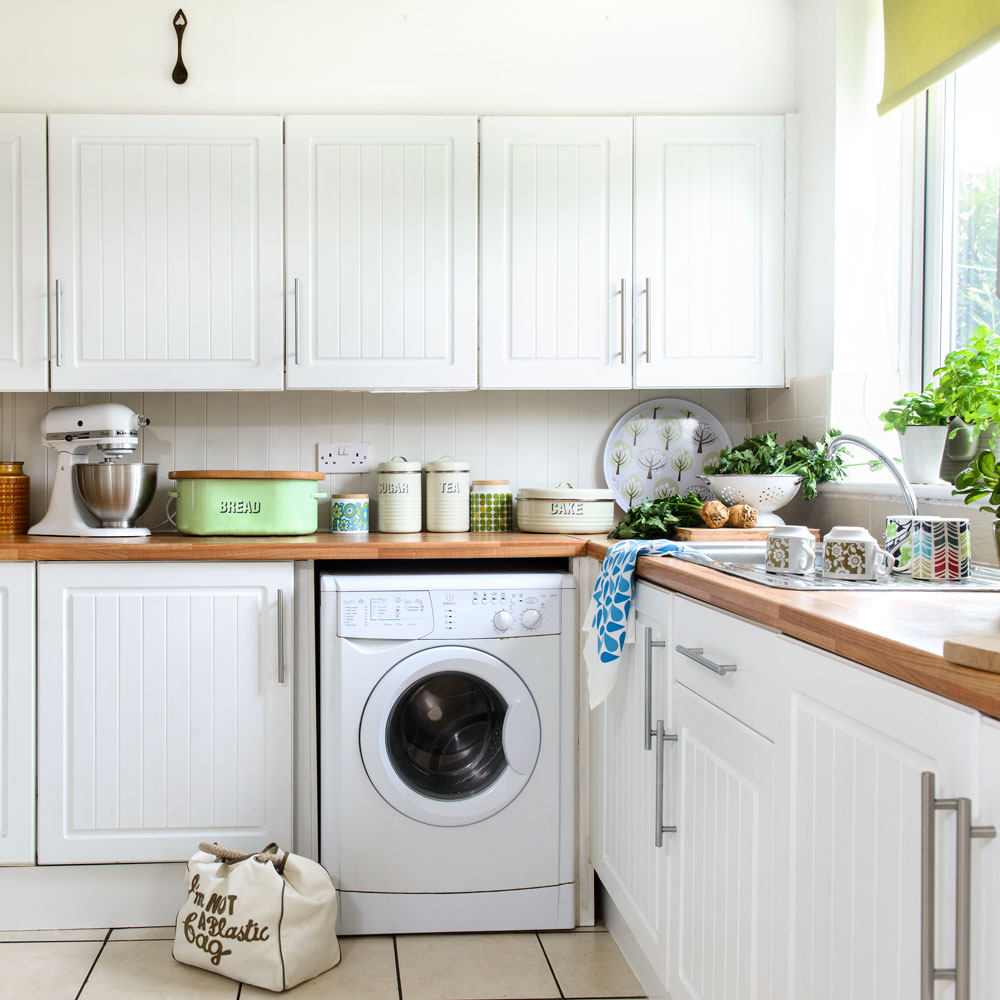Why is my electricity bill so high? 6 root causes identified
There’s no denying that when a particularly high electricity bill arrives it can be an unwelcome surprise.
Are there times you find yourself asking why is my electricity bill so high? Extra costs could well be one of 6 common root causes, all easily avoided – when you know what they are.
There’s no denying that when a particularly high electricity bill arrives it can be an unwelcome surprise. With inflation at a decade high of 4.3% and living expenses on the rise, we’re all looking for ways to save energy at home.
However, there is no need to restrict everyone in the household from how long they use devices or watch TV. These are all small changes you can make in your home that will help reduce the amount of electricity you use.
Common high electricity bill culprits
We’ve identified the six root causes that will help with answering 'why is my electricity bill so high' – from relying on estimated bills rather than providing smart meter readings, to appliances that guzzle energy when they’re not being used. Here’s everything you need to know to reduce your electricity bill.

1. Estimated electricity bill
Are you lax at providing your energy supplier with meter readings? If this is the case then your energy provider will be issuing you with estimated bills. It works out the energy usage it expects based on the size of your home and previous usage. However, this may well be more than than the actual figures.
Consider getting a smart meter. They automatically send meter readings straight to your provider with an accurate figure for your usage. These are free and you can request one from your energy provider.
Alternatively, diarise regular meter readings. Once a month is plenty – and ensure you send these to your supplier through its website or app. Contact your supplier and check how far in advance you need to provide a reading before your bill is prepared.
2. Vampire devices
Some electrical devices still use energy even if they’re in standby mode. Known as vampire devices, research by British Gas revealed that this could be adding an average of £110 to your home’s electricity bill every year - and could be part of the reason it’s so high.
Common vampire devices include:
- Coffee machines and kettles
- Microwaves and ovens with digital clocks
- Washing machines
- TV and game consoles
- Printers and laptops
- Phone chargers
Standby mode is convenient as it means the appliances will turn on almost instantly when you want them. However, it's also pricey, so we recommend turning appliances off at the electrical socket rather than using standby mode to ensure you won't be asking 'why is my electricity bill so high' as much.
Similarly, ensure you unplug laptop and phone chargers rather than leaving them connected to your electrical socket.
If you want to know what the worst culprits are, then make sure you pick yourself up an energy monitoring plug, available from Amazon.

If you find electrical sockets are in hard to reach locations, such as behind furniture, consider investing in an extension lead, which will ensure the switches are more accessible.
Alternatively, smart plugs that turn off from your smartphone are another option. Try the Tapo Smart Wi-Fi socket plug, £9.49 at Amazon. However, it’s worth noting that if you switch a set-top box off at the wall outlet, it won’t be able to record any programmes you have scheduled. In this case you’ll need to leave your set-top box in standby mode.
3. Inefficient appliances
According to the Energy Saving Trust, older appliances all use more electricity than modern, more efficient models. Of course, while it doesn’t make financial sense to rush out and replace all of your appliances with new iterations, when you do come to replace an item, paying attention to the energy label and seeing if you can choose one of the more efficient options that meets your needs, will help you to hopefully think 'why is my electricity bill so high' less often.
Common dated appliances that drink electricity include:
- Fridges
- Freezers
- Dishwashers
- Washing machines
- Tumble dryers
- TVs
For example, vented tumble dryers are the cheapest option on the market when it comes to an appliance that can dry your clothes. But, they’re also the most energy inefficient. Heat pump tumble dryers use the least electricity (around 50% less than vented tumble dryers) and they’re more expensive to purchase initially.
4. Old light bulbs
You might also be surprised how much light bulbs cost to run. While halogen bulbs have now been banned from sale in the UK, you may still have these energy-inefficient bulbs in your home. Consider swapping them for LED variants. According to the Energy Saving Trust, you could shave between £2 to £3 per year off your electricity bill for every bulb you switch. Also get into the habit of switching lights off when you leave a room, as it will also help reduce bills.
5. Not using appliances to their full capacity
Do you set the dishwasher going at the end of the day even if it’s only half full, or perhaps you put the washing machine on even if it's not a full load? While it might seem a convenient practice, with how much energy a dishwasher costs to run they’re actually part of the answer to 'why is my electricity bill so high'. The appliances still heat the same amount of water regardless of whether they are full or not. The same is true when you boil a full kettle of water, even if you’re only making one cup of tea.
Most washing machines, and some dishwashers, have a half-load function. In the case of washing machines this means it reduces the amount of water used, and will therefore require less electricity to heat it.
Meanwhile, when dishwashers have a half load function, the jets to either the top or bottom rack are turned off and again require less water to be heated using less electricity.
Try to get in the habit of leaving the kettle empty, and then only adding the amount of water you need to boil. This will mean there’s no water left sitting in your kettle, it helps reduce limescale build-up if you live in a hard water area too.

6. Washing at high temperatures
While there will be times when you need to wash at high temperatures, chances are most of the time your washing machine is set on a 40 degree cycle. However, by reducing this to 30 degrees you can reduce the amount of electricity your washing machine uses per cycle by 40%, says the Energy Saving Trust.
Modern washing machines and advancements in detergents mean there’s very little difference between washing clothes at 40 degrees and 30 degrees. While opting for lower temperatures will also help preserve colours. The majority of UK retailers now state on labels if clothes can be washed as low as 30 so always check before starting a program on your washing machine.
Get the Ideal Home Newsletter
Sign up to our newsletter for style and decor inspiration, house makeovers, project advice and more.
-
 I'm a kitchen decor editor and didn't like this tableware trend - until I saw H&M Home's designer-look plates
I'm a kitchen decor editor and didn't like this tableware trend - until I saw H&M Home's designer-look platesThey made it easy to justify a new crockery set
By Holly Cockburn
-
 Garden expert reveals when to mow new turf and the 3 tell-tale signs your new lawn is ready to be cut
Garden expert reveals when to mow new turf and the 3 tell-tale signs your new lawn is ready to be cutIf you want a lush, green lawn, you mustn't mow new turf too soon
By Kezia Reynolds
-
 I ditched my regular vacuum to test Shark’s newest (and cheapest) release — it’s a great entry-level Shark vacuum cleaner
I ditched my regular vacuum to test Shark’s newest (and cheapest) release — it’s a great entry-level Shark vacuum cleanerThe Shark PowerPro is cheap and cheerful, but might not suit everyone
By Lauren Bradbury
-
 You can claim back over £300 a year from HMRC if you work from home - here’s how to check if you’re eligible
You can claim back over £300 a year from HMRC if you work from home - here’s how to check if you’re eligibleWhen it comes to saving, every little helps
By Kezia Reynolds
-
 Experts have revealed the best day to renew your home insurance policy - you’ll want to do it sooner rather than later
Experts have revealed the best day to renew your home insurance policy - you’ll want to do it sooner rather than laterDon't leave this task at the bottom of your to do list
By Kezia Reynolds
-
 Is a variable rate mortgage ever a good idea? Experts weigh in
Is a variable rate mortgage ever a good idea? Experts weigh inOur money expert explains what a variable rate mortgage is, who they can be good for, and the pros and cons of this kind of mortgage
By Samantha Partington
-
 I’m a first-time buyer, what are my chances of getting a mortgage right now?
I’m a first-time buyer, what are my chances of getting a mortgage right now?And what you can do to increase your odds
By Rachel Wait
-
 Should you ever pay above the asking price for a home?
Should you ever pay above the asking price for a home?Our money expert explains whether you should ever pay over the asking price for a home, especially if house prices fall as predicted
By Samantha Partington
-
 Should I fix my mortgage and how long should I fix for?
Should I fix my mortgage and how long should I fix for?We speak to the experts to find out whether you should fix your mortgage and how long for as well as the impact further interest changes could have on your decision
By Samantha Partington
-
 We put your mortgage questions to two leading experts, here's what they said
We put your mortgage questions to two leading experts, here's what they saidAs mortgage panic continues, we've answered the most common questions - from when mortgage rates will come down, to when you actually have to pay stamp duty
By Samantha Partington
-
 'My mortgage is set to skyrocket - what should I do?' 5 potential solutions from a money expert
'My mortgage is set to skyrocket - what should I do?' 5 potential solutions from a money expertIf you're facing higher mortgage costs, our money expert explains various courses of action you could take to ease the pressure
By Samantha Partington